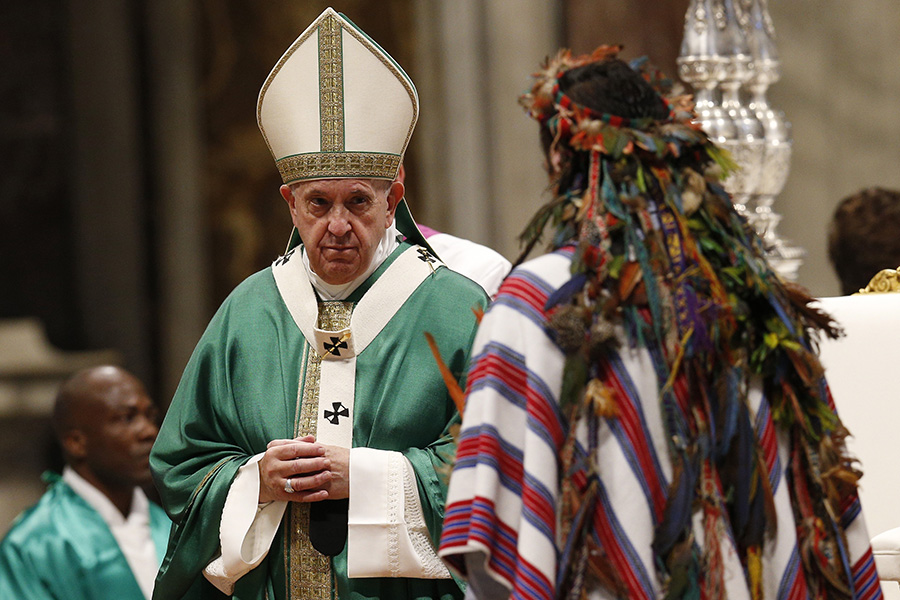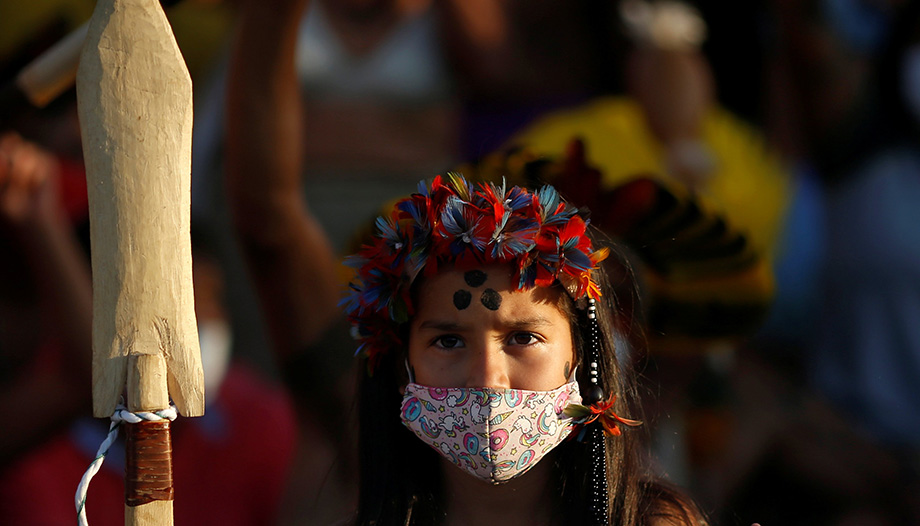Last week a great commotion arose in Spain about the Pope's letter to the president of the Mexican Episcopal Conference on the occasion of the second centenary of independence.
The text was presented by many media as a request for forgiveness for the sins committed during the conquest.
Actually, it is something much more interesting than that. The Pope sees this feast as an opportunity to think about freedom and suggests that it should not be understood as an energy to separate us from our origins but to deepen who we are. So, in the context of a feast of independence, the Pope talks about roots!
Forgiveness, not prosecution
Searching for our roots forces us to look to the past and, it is true, there we find episodes that are not always edifying. In Mexico's past we find abuses committed by the Spaniards who brought the rich American world into contact with old Europe. If we Spaniards protested for calling by name the abuses committed by some conquistadors, we would turn patriotism into a petty partisanship, for it is not patriotism to defend a crime as long as it has been committed by "one of our own". This way of thinking would put us far away from the spirit with which the Spanish authorities were guided when they carefully investigated and prosecuted many of those conquerors.

But the Pope did not intend to prosecute Spain. He was interested in Mexico's past and its Christian roots. He only wanted to evoke the request for forgiveness of different Popes for the sins committed by Christians during the course of the American evangelization. Thus, for example, John Paul II said in Santo Domingo on October 12, 1992: "The Church, which with her religious, priests and bishops has always been at the side of the indigenous people, how could she forget [...] the enormous sufferings inflicted on the inhabitants of this Continent during the time of the conquest and colonization?"
There is no doubt about the close proximity of the evangelizers to the indigenous peoples, some of whose languages have been preserved in the grammars and catechisms elaborated by the missionaries. Christianity was the greatest retaining wall to the sadly spontaneous greed of the heart of the conquerors.
From the prestigious University of Salamanca, some decades after Columbus' arrival in the Antilles, the eminent Francisco de Vitoria, Dominican Father, and other Catholic intellectuals denounced the sins committed against the natives: the evil deeds of the conquerors, coming from Christians, constituted a grave scandal for the natives to whom the treasure of the Gospel was being delivered.
The main motive for being in America for so many dedicated religious, carefully selected by their superiors from among the cream of their orders, was fidelity to the mandate of Jesus and a sincere love for the inhabitants of those lands. This is demonstrated by the courageous confrontations with the political authorities demanding respect for the dignity of these people and the fact that the proclamation of the Gospel was extended beyond the margins of control of these authorities. Even so, the authority itself contributed not a little to the fact that the result of the Spanish presence was formidable, very far from an exploitative colonization: new agricultural techniques and forms of cattle breeding were introduced, unknown until then in the New World, hundreds of hospitals were built, in less than a hundred years 8 universities had already been erected, which reached 26 in the XVIII century...
Persecution of Catholics
What few noticed last week was that the Pope not only mentioned "the actions or omissions that did not contribute to evangelization" but also "the actions that, in more recent times, were committed against the Christian religious sentiment of a large part of the Mexican people, thus provoking profound suffering".
The persecution suffered by Mexican Christians during the so-called Cristero War, more than a century after independence, indicates that Christianity has been deeply engraved in its roots and has transcended the relationship with Spain.
Our predecessors could have done many things better, but that does not prevent us from thanking God for the many beautiful and honorable achievements they have bequeathed us.
David Torrijos
But neither did the Pope intend to poke his finger into this other, much more recent sore spot. The Pope invited us to look to the future. For this reason, I believe that the feast of "tempers" celebrated this week in our country can help us. It is a hinge-feast that unites the past with the future: these are days to ask forgiveness for the sins of the past year, to give thanks for the benefits received and to ask for help for the year that is beginning. The sins of the past remind us to be vigilant, for no one is free from temptation. It would be irresponsible to console ourselves by accusing our ancestors of certain faults while ignoring the sins we commit in the present.
Perhaps our predecessors could have done many things better, but that does not prevent us from thanking God for the many beautiful and honorable achievements that they have bequeathed to us. Therefore, looking at the past moves us to look to the future with a prayer on our lips, for the future is in our hands, but we must give our hands to the Lord to guide them. The Pope ends his letter by encouraging the Mexican people to entrust themselves into the hands of the Virgin of Guadalupe. Mary has touched the hearts of all the peoples of the Americas because, beyond human awkwardness, experience has shown them that the Son of Mary brings out the best in us and raises it above our own expectations.
Assistant Professor, Faculty of Philosophy, San Daámaso Ecclesiastical University









